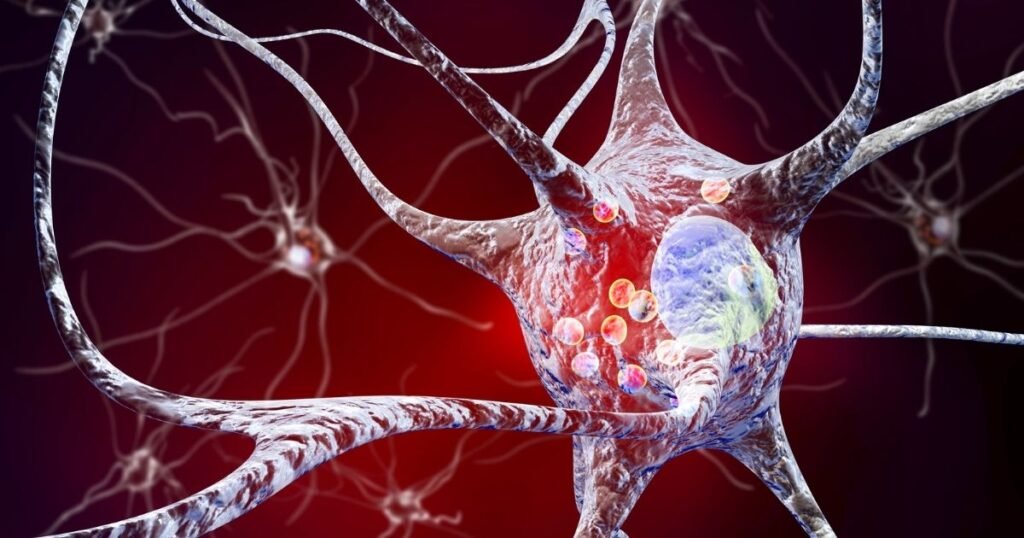The COVID-19 pandemic has revealed that, beyond causing respiratory illness, the SARS-CoV-2 virus can also affect the brain and nervous system.Brain Coronavirus Neurology Studies have uncovered short- and long-term neurological manifestations of coronavirus infection.
Read More: Human Brain

Acute Symptoms
Some patients experience central nervous system effects acutely while infected with COVID-19:
- Dizziness, headache, impaired consciousness: These are linked to hypoxia from lung involvement. Fever and inflammation also play a role.
- Anosmia: Loss of smell is a common early symptom tied to upper nasal infection impacting olfactory nerve cells.
- Ataxia, seizures: Severe cases display neurological conditions indicating brain dysfunction. Theories include the virus directly infecting neurons.
- Strokes: COVID-19 can increase risk of blood clots leading to ischemic stroke, especially in moderate to severe disease.
- Encephalopathy: Altered mental status with confusion and agitation has occurred, signaled by imaging showing widespread brain impact.
The virus appears able to cross the blood-brain barrier and could invoke a damaging inflammatory immune response in the CNS. Those with preexisting neurological conditions may face higher risk.

Long-Term Effects
In those who recover from Brain Coronavirus Neurology acute COVID-19, some experience neurological problems weeks or months later:
- Cognitive dysfunction: Issues with memory, concentration and mental sharpness have been widely reported, dubbed “brain fog.” Fatigue compounds this.
- Headaches, dizziness: These neurological symptoms often continue well past initial recovery. The mechanisms are not fully defined.
- Myelitis, Guillain-Barre: Inflammation of the spinal cord and peripheral nerve damage leading to weakness and paralysis are rare longer-term manifestations being studied.
- Psychiatric problems: Anxiety, depression, and sleep disorders have been associated with post-COVID-19 syndrome, along with PTSD in severe cases. Changes in brain chemistry are suspected
The emerging picture is that SARS-CoV-2 can have lingering impacts on the brain and cognition for those recovering from even milder initial infections. Brain Coronavirus Neurology The scale of this issue is still under investigation.
Neurological Risk Factors
Research indicates certain groups may face heightened risk of neurological complications:
- Older individuals, especially over 60
- Those with diabetes, hypertension, obesity and cardiovascular disease
- People with a history of neurological or mental health disorders
- Those with compromised immune systems
Viral load during initial infection along with the severity of systemic inflammation appears linked to development of neurological issues. Genetic factors may also play a role.
Ongoing Research
There are still many unknowns about the neurological sequelae of COVID-19. Key questions under study:
- How directly does the virus access and attack neurological tissue?
- What is the role of the post-infection immune response in damaging the nervous system?
- What is the connection to “brain fog” and cognitive impairment complaints?
- Are neurological effects temporary or permanent?
- What are the best diagnostic tools and treatments?

Neurologists anticipate impacts on the CNS could linger for long stretches or even become chronic conditions. More research on prevalence and Brain Coronavirus Neurology underlying mechanisms is crucial. MRI scans and cognitive assessments will help unravel the full scope.
In Conclusion
SARS-CoV-2 has proven capable of infiltrating the brain and impacting neurological health both acutely and in extended timeframes. Effects range from headaches and loss of smell to strokes and dementia-like symptoms in severe cases. Brain Coronavirus Neurology Those recovering from COVID-19 should be alert for neurological issues and seek medical evaluation if they persist. Brain Coronavirus Neurology Addressing these lingering consequences will be key for the full care and rehabilitation of COVID-19 patients.
Read More: Brain Coronavirus Neurology
Relevant FAQs:
Q: What percentage of COVID-19 patients experience neurological symptoms?
A: Studies estimate anywhere from 30% to over 80% of hospitalized patients exhibit some neurological manifestation based on type of evaluation.
Q: Can COVID-19 directly infect brain cells?
A: Evidence suggests SARS-CoV-2 particles can cross into the brain and infect neurons in some cases, but much is still unknown about this process.
Q: How long might COVID-19 neurological effects last?
A: It’s still unclear if effects could be permanent or eventually resolve. There are cases with symptoms lingering for many months post-infection.
Q: Can COVID-19 cause mental illness?
A: Viral inflammation in the brain along with psychological stress could contribute to issues like anxiety, depression and PTSD according to growing research.
Q: What helps alleviate post-COVID neurological problems?

A: Neuroprotective medications, physical/cognitive rehab, psychotherapy, prevention of additional infections, and controlling risk factors may help manage conditions.






